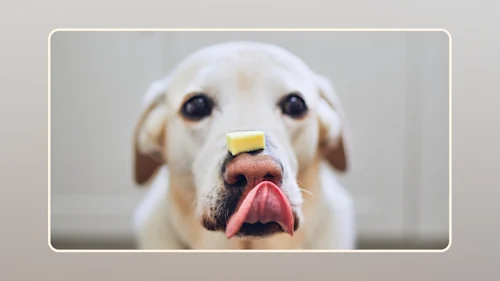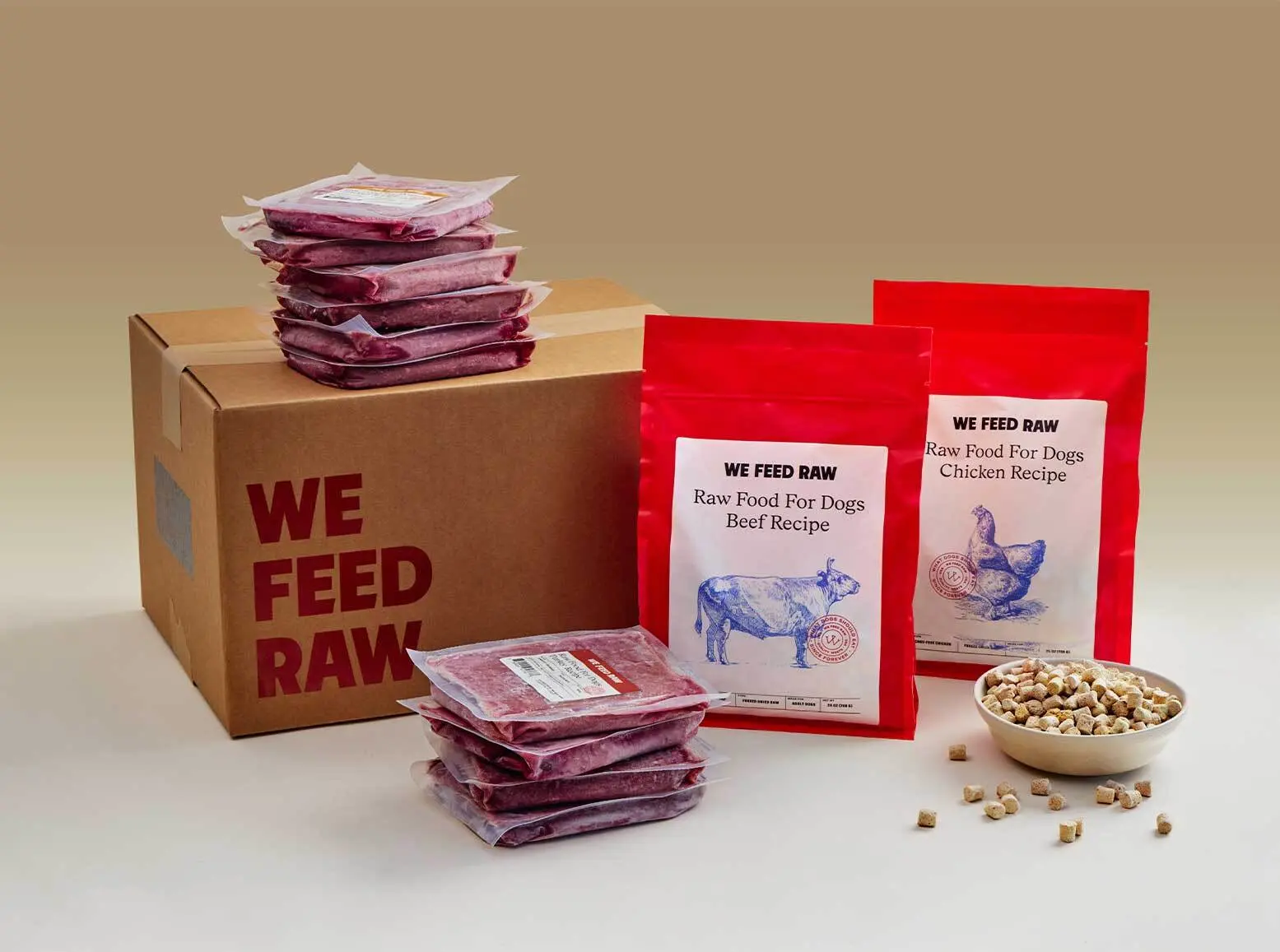
Revealed: The Surprising Truth About Dogs Eating Cheese
Table of Contents
Can dogs eat cheese? The answer is more complicated than you might think. While most dogs can eat some cheese without any problems, some dogs can’t eat any cheese, and some types of cheese shouldn’t be eaten by any dogs.
Confused?
Keep reading, and we’ll tell you which dogs can eat cheese, which dogs should not eat cheese, which types of cheese are safe for dogs, which types of cheese are not safe for dogs, and so much more!
Can Dogs Eat Cheese?
The short answer is that most dogs can tolerate a little bit of cheese without any problems. However, most dogs are at least slightly lactose intolerant (since they lack the enzyme required to digest lactose), and some dogs will have significant problems digesting cheese, leading to stomach problems. Additionally, some types of cheese (especially blue-veined cheeses) are not safe for dogs.
To determine whether your dog can tolerate cheese, you should start by giving them a small piece and see how they react. If they don’t have any gas or diarrhea, you can gradually add more and different kinds of cheese to their diet.
However, cheese is high in fat and sodium, so it should only ever be an occasional treat and may not be appropriate for dogs who have had pancreatitis, pooches with kidney problems, pups who are overweight, and dogs with sensitive stomachs or lactose intolerance.
Different Types of Cheese and Dogs
Since there are so many different types of cheese out there, all with different fat and salt contents along with other ingredients that may potentially harm your pup, the question of “Can dogs eat cheese?” is best answered on a cheese-by-cheese basis.
Can Dogs Eat Cottage Cheese?
Yes. Fermented, low in lactose, and high in protein and calcium, cottage cheese is a great option for dogs. However, it is also high in calories and fat, so don’t overdo it.
Can Dogs Eat Cream Cheese?
No. Since cream cheese is high in fat and frequently mixed with ingredients that are harmful to dogs (like onion, xylitol, nutmeg, or chocolate), dogs should not eat cream cheese.
Can Dogs Eat Parmesan Cheese?
Yes. Parmesan cheese is low in lactose and easy to use as a tasty food topper for picky pups.
Can Dogs Eat Mac and Cheese?
No. While your dog will probably be OK if they sneak some mac and cheese off your plate, the food is high in carbohydrates, preservatives, and sodium, so you shouldn’t give it to your pup voluntarily.
Can Dogs Eat Mozzarella Cheese?
Yes, dogs can eat mozzarella cheese as long as it hasn’t been fried. Frying adds harmful amounts of fat to the cheese, but mozzarella cheese by itself is relatively low in fat and lactose, making it safe to feed dogs.
Can Dogs Eat String Cheese?
Yes, dogs can eat string cheese because it’s relatively low in salt and lactose.
Can Dogs Eat Cheddar Cheese?
Yes, dogs can eat cheddar cheese in moderation.
Can Dogs Eat Swiss Cheese?
Yes, dogs can eat Swiss cheese.
Can Dogs Eat Feta Cheese?
Yes, dogs can eat feta cheese in small amounts, although it’s high in saturated fat, so it should only be an occasional treat.
Can Dogs Eat Blue Cheese?
No, dogs should not eat any blue-veined cheese. The blue coloration is caused by a fungus that creates roquefortine, which can be toxic to dogs. Examples of blue cheeses that dogs should avoid include:
•Gorgonzola
•Stilton
•Danish Blue
•Cabrales
•Roquefort
Benefits and Risks of Feeding Cheese to Dogs
As with any food item, giving cheese to your dog comes with its own set of benefits and risks.
Benefits of Feeding Cheese to Dogs
Cheese has many benefits for dogs, including:
•Protein
•Vitamin A
•B-complex vitamins
•Essential fatty acids
•Delicious!
Risks of Feeding Cheese to Dogs
Some of the risks associated with feeding cheese to dogs include:
•Lactose intolerance/gastrointestinal upset
•High in fat, may trigger pancreatitis
•Blue cheese is toxic for dogs
•Weight gain
Tips for Feeding Cheese to Dogs
If you choose to feed your dog cheese, here are some tips to make sure the experience goes as smoothly as possible:
•Start small to see how well your pup’s digestive system handles the lactose
•Stick with low-fat cheese like mozzarella and cottage cheese
•Avoid spicy cheeses like pepper jack
•Mix cheese with your dog’s regular food to pique their interest
•Keep cheese as an occasional special treat rather than a regular part of your pup’s diet
Can Dogs Eat Raw Meat?
After learning about whether dogs can eat cheese, you might be wondering if dogs can eat raw meat, and the answer is yes! Dogs’ digestive systems are remarkably similar to their wolf ancestors’ digestive tracts, and they’re designed to thrive on a raw, meat-based diet.
Learn more about our species-appropriate, nutritionally complete and balanced, easy-to-feed raw food here.
Frequently Asked Questions (FAQs)
Is cheese good for dogs?
While cheese does have some benefits for dogs (like protein and fatty acids), it’s also high in fat and sodium. Cheese makes a great occasional snack for dogs, but it isn’t necessarily a good idea to include it as a regular part of your dog’s diet.
How much cheese can a dog eat?
How much cheese a dog can eat varies depending on their size and their level of lactose intolerance. In general, small dogs should only get one or two small pieces of cheese per day (but not every day). Medium and large dogs who aren’t extremely lactose intolerant may be able to eat as many as five or six small pieces of cheese.
Can cheese make a dog sick?
Yes, in some cases, cheese can make a dog sick. Most dogs don’t have the enzyme lactase, which is required to digest lactose, a common ingredient in most dairy products. Lactose-intolerant dogs may experience gas or diarrhea after eating any cheese.
Additionally, blue cheese contains a compound that is toxic for dogs (roquefortine), so it can make any dog sick, regardless of how well they tolerate lactose.
Is cheese a good treat for dogs?
Cheese may be a good treat occasionally for dogs who tolerate it well, but there are other treats available that are better suited for dogs.
What happens if a dog eats cheese?
If a dog eats cheese, they might experience some gastrointestinal problems due to lactose intolerance. Or, they might love the cheese and not have any problems at all. It depends on the dog and the type of cheese.
Which type of cheese is safest for dogs?
Low-fat cheese like cottage cheese and mozzarella are safest for dogs.
Are there cheese alternatives safe for dogs?
While there may be cheese alternatives on the market that are safe for dogs, you must thoroughly check the ingredient list of any food before giving it to your dog. Do not share any cheese alternatives with your dog that contain any ingredients that are toxic for dogs, such as macadamia nuts or chocolate.
Can puppies eat cheese?
Puppies may be able to eat a little bit of cheese now and then, but you should keep it as a very rare snack since cheese is high in fat and salt and may cause stomach problems due to puppies being lactose intolerant.
How to check if my dog is lactose intolerant?
Your dog may be lactose intolerant if you feed them a dairy item and they experience:
•Vomiting
•Diarrhea
•Bloating
•Lack of appetite
•Flatulence
Can dogs have an allergic reaction to cheese?
While rare, it is possible for dogs to have an allergic reaction to cheese, which is one reason you should always feed it in very small amounts, especially if you’ve never fed cheese to your dog before.

Our Meals Change Lives.
(Theirs + Yours.)
See health improvements from our raw meals in as little as 1 week.
